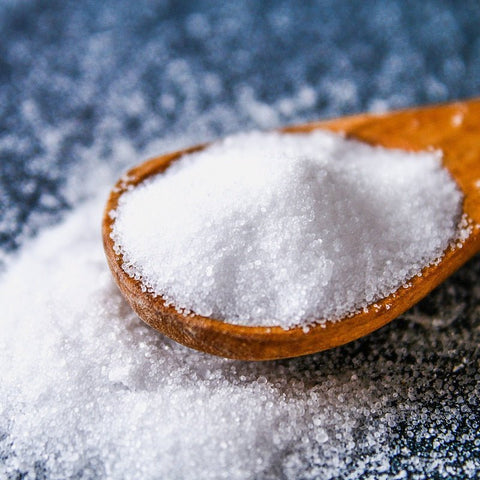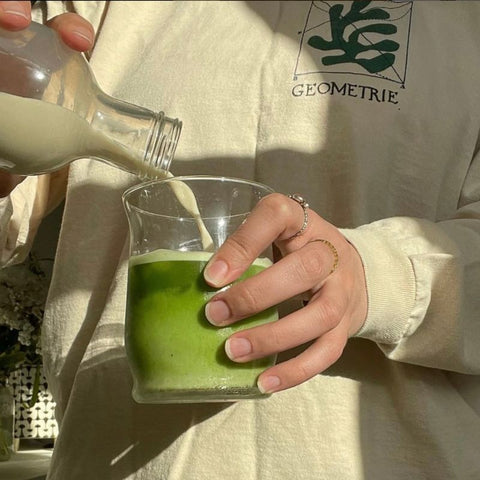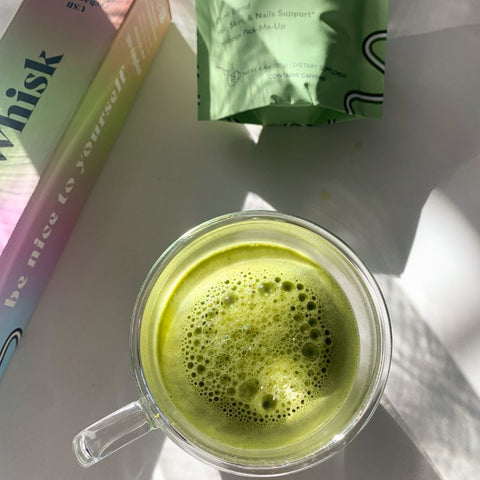We always talk about collagen production through supplementation, but what else can you do to keep your skin’s collagen levels happy and healthy? Here are a handful of simple ways you can help stimulate your body’s collagen production in the skin.
Take note every skin type might respond differently to some of the below topicals or treatments. If you have sensitive skin or are taking any forms of medication that might make your skin sensitive it would be best to discuss any treatments or topicals with your dermatologist or doctor beforehand.
Why do we need to stimulate collagen?
Collagen is an important protein in supporting the tissues without our body, but why do we have to support it? The truth is that collagen is extremely beneficial to the skin, hair, and nails, and joins in our bodies. In order to maintain a healthy amount as we age, finding ways to support your collagen production can help keep the levels at an adequate amount.
Some decide to supplement by drinking collagen, which is an animal product. At Copina Co. we support our collagen production through vegan sources! We do this with an herbalist-formulated blend of plant botanicals that actually support your body’s own collagen production. This is how vegan collagen alternatives are different from animal-based collagen - they’re not peptides sourced from animal products and focus on helping you make more of your own collagen.
Aside from supplementation through collagen drinks, there are other ways to help aid your skin in stimulating its collagen production.
Aloe
We all dive for our aloe gel after a long beach day to aid our sun-touched skin, but can it also help our collagen levels?
In a study done in 2015, scientists tested if aloe vera gel taken orally would help the skin. The research found that the participants who took aloe vera sterols had better hydration in the skin of their arms, wrinkles were not as deep, and their levels of hyaluronic acid and collagen almost doubled.
You can find aloe through juices, aloe vera gel, or supplementation.
Retinol / Bakuchiol
Retinol or the natural alternative Bakuchiol both stimulate the skin cells in order to try and create more collagen production. The benefits of using these products are supposed to help work with the skin at a cellular level to exfoliate the skin.
Choosing between retinol or Bakuchiol will depend on how sensitive your skin is.
Topical Vitamin C
Using a Vitamin C topical in the morning can be beneficial to help protect the collagen in your skin against UV damage. It can also help collagen formation and stabilize the collagen proteins in the skin as it is an important antioxidant.
Before buying any Vitamin C serum, make sure to look into its shelf life and potency.
Niacinamide
In some studies, it was suggested that niacinamide increases collagen production in the skin. The topical is often used in a 5% concentration and sometimes is sold in a topical with Vitamin C.
Silica
Adding silica to our diet is one of our favorite ways to boost our hair, skin, and nail health.* Bamboo extract is a rich source of silica, a naturally occurring mineral found in plants, which supports the body's collagen production as well as healthy hair, skin, and nails.
What is not commonly known is that plant sources contain much higher levels of silica than animal sources and that bamboo contains the richest amount of silica of any plant! Bamboo is composed of nearly 70% silica (nearly 10x the amount of silica in horsetail herb or stinging nettle) making it one of the richest and most sustainable sources on our planet. This is why we chose to add the collagen-boosting ingredient to all our beauty blends.
Biotin
You probably have seen biotin in the daily supplements you may take or on shampoo labels. Its primary functions include turning the nutrients we ingest (i.e. proteins, fats, and carbohydrates) into energy that our body can use. Each Copina Co. blend contains 3,000mcg Biotin per serving. That amounts to over 10,000% of your daily value.* Biotin helps support collagen’s synthesis process in your skin which is why the supplement is so important to stimulating collagen.
Functional Mushrooms
The tremella mushroom, or tremella fuciformis or “snow mushroom”, is an edible species of fungus that has been used in Eastern medicine for over a thousand years. This superfood has historically been used to help boost skin hydration over time after being consumed.*
This superfood mushroom all helps boost collagen production and polysaccharides specifically are a carbohydrate chain that helps promote collagen synthesis in the skin. This all leads to improved skin elasticity and reduction of fine lines and wrinkles.*
You can find Organic Tremella Mushroom Extract in all our drink blends, including our Vanilla and Original Plant-Based Collagen Boosts.
Topical Peptides
Peptides are amino acids that help create the building blocks of proteins in your skin, aka collagen and elastin.
Some products will contain lab-engineered peptides that can help stimulate skin growth and repair. Some of these anti-aging peptides also promote collagen production in your skin. Using these peptides helps firm your skin.
Protecting Skin from Environmental Factors
Environmental factors are a huge reason why collagen production slows down. Other than the natural aging cycle, there are a few ways to help stimulate collagen production just by producing it from outside factors.
These factors include:
- Light damage or sun damage
- Avoiding smoking
- Limit caffeine
Wearing sunscreen or wearing clothes/hats that help protect your body from the sun can help keep your collagen levels high. Also wearing sunglasses that are treated to help cover the skin around your eyes and eyelids can help with collagen.
Overall, there are always treatments or topical ways to help your skin stimulate its collagen production. Remember to, when applying these treatments or topicals, use them not just on your face, but also on your neck and chest to help stimulate collagen everywhere.
Another great way to help support your body’s natural collagen production is through supplementation with our beauty blends. Using our Vanilla Plant-Based Collagen Boost Creamer Blend in your morning coffee or taking a Matcha Plant-Based Collagen Boost Drink Blend Stick Packs with you to work will help boost your body’s natural collagen production without taking too much out of your day. Our vegan and gluten-free formulas are easy ways to help support your body while also enjoying a tasty drink throughout your day.
If you want to continue stimulating collagen in your skin, read other ways you can boost your collagen production and keep your body happy and healthy:














